<--- Back to Details
| First Page | Document Content | |
|---|---|---|
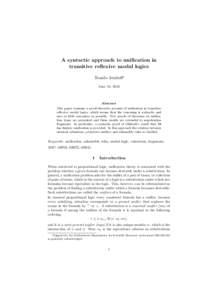 Date: 2016-06-10 10:39:23Logic Mathematical logic Abstraction Non-classical logic Modal logic Automated theorem proving Logic programming Model theory Admissible rule Substitution Unification Intermediate logic |
Add to Reading List |
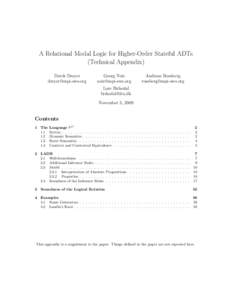 | A Relational Modal Logic for Higher-Order Stateful ADTs (Technical Appendix) Derek Dreyer Georg NeisDocID: 1vj1H - View Document |
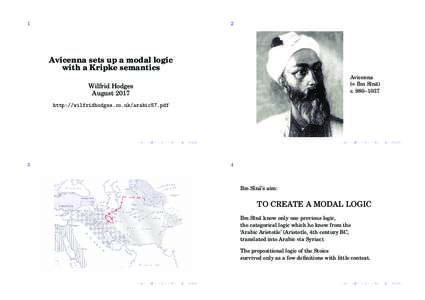 | 1 2 Avicenna sets up a modal logic with a Kripke semanticsDocID: 1uVyg - View Document |
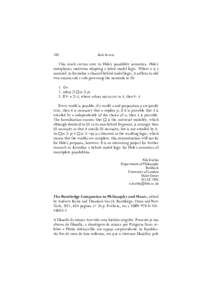 | 100 Book Reviews This much carries over to Hale’s possibility semantics. Hale’s metaphysics motivates adopting a hybrid modal logic. Where n is aDocID: 1uUMQ - View Document |
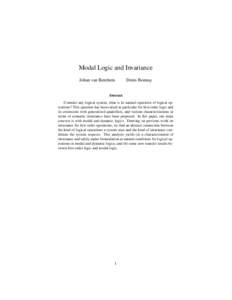 | Modal Logic and Invariance Johan van Benthem Denis Bonnay AbstractDocID: 1uOtj - View Document |
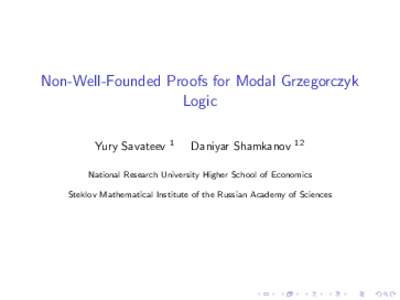 | Non-Well-Founded Proofs for Modal Grzegorczyk Logic Yury Savateev 1DocID: 1uJwG - View Document |
 A syntactic approach to unification in transitive reflexive modal logics Rosalie Iemhoff∗ June 10, 2016 Abstract
A syntactic approach to unification in transitive reflexive modal logics Rosalie Iemhoff∗ June 10, 2016 Abstract